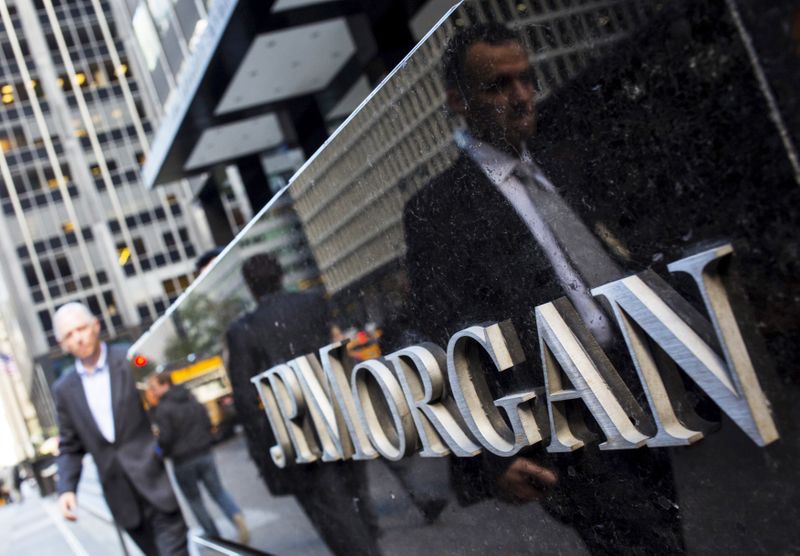This post was originally published on this site
https://i-invdn-com.akamaized.net/trkd-images/LYNXNPEG8L06B_L.jpg
BOSTON (Reuters) – Top U.S. asset managers BlackRock Inc and JPMorgan Chase & Co were divided in their support of climate-related proxy resolutions at corporate meetings this year, two analyses showed on Tuesday, underscoring the industry’s mixed appetite for the vehicles ahead of a key rulemaking.
Both studies – done by climate-focused shareholder organizations – found BlackRock (N:BLK) continued to offer little backing to resolutions asking companies for steps like setting emissions targets or lobbying reports.
The findings prompted the organizations to complain that BlackRock hasn’t backed up its vows to prioritize climate matters earlier this year. The studies found BlackRock supported such resolutions around 10% of the time this year, about the same as in 2019.
Other fund firms supported the climate-related resolutions about half the time or more, in keeping with their increased popularity, the studies of dozens of votes said.
Proxy votes have drawn attention in recent years as a point of leverage for investors looking for companies to take more aggressive action on the environment or social issues. But they also can put fund firms in the awkward position of demanding changes at the same companies whose retirement assets they seek to manage.
One more frequent backer of the resolutions was the asset-management arm of JPMorgan (N:JPM) which supported them roughly half the time this year according to the separate but similar studies by activist investment firm Boston Trust Walden and by Majority Action, a liberal-leaning shareholder advocacy group.
That was up from JPMorgan’s support rate of just 4% for climate resolutions in 2019 according to Walden.
“I see an asset-management industry that overall is waking up to the substantial level of risk of climate change,” said Eli Kasargod-Staub, Majority Action executive director. He and Walden senior vice-president Tim Smith both said BlackRock’s climate voting record did not match its rhetoric.
“It’s shocking to see their votes remain at this substandard level,” said Smith.
A BlackRock spokesperson said it has spoken more frequently this year with portfolio companies on environmental matters and other issues, voted more frequently against corporate directors and given more details about its stewardship activities. BlackRock also said not all proposals are worth supporting, and that “not all shareholder proposals are created equal.”
It had previously given statistics showing it took a tougher line in some proxy votes this year, especially at energy companies.
A JPMorgan spokeswoman declined to comment on its proxy votes. In February the company had outlined new initiatives for sustainable investing including more use of data.
The 162 environmental and social proposals voted at shareholder meetings this year at S&P 1500 companies won average support of 27.7% and 18 passed, said proxy solicitor Georgeson, up from 2017 when 211 of them won 20.3% average support and 5 passed.
Business groups – including one led by JPMorgan CEO Jamie Dimon – have supported making the proposals harder to file or resubmit and last November the U.S. Securities and Exchange Commission voted 3-2 along partisan lines for such changes. A final vote could come Wednesday.
BlackRock, known for its index funds, has taken a neutral stand on the rule changes, unlike some active management firms that oppose them. JPMorgan has not filed comments on the matter.
A BATTLE AT DELTA
Whatever the outcome, BlackRock and some rivals have begun to provide more details about individual votes.
For instance at Delta Air Lines Inc (N:DAL) BlackRock voted “against” a shareholder resolution calling for a company report on how its lobbying activities match goals to limit rises in global temperatures.
Explaining the vote on its website, BlackRock said it expects Delta will provide more disclosures in any case and noted it is working to reduce its emissions via newer planes and the use of biofuels.
The resolution drew support from 46% of shares cast, including votes from JPMorgan, securities filings show. It would have passed with the support of BlackRock, a 5% holder at the time.


